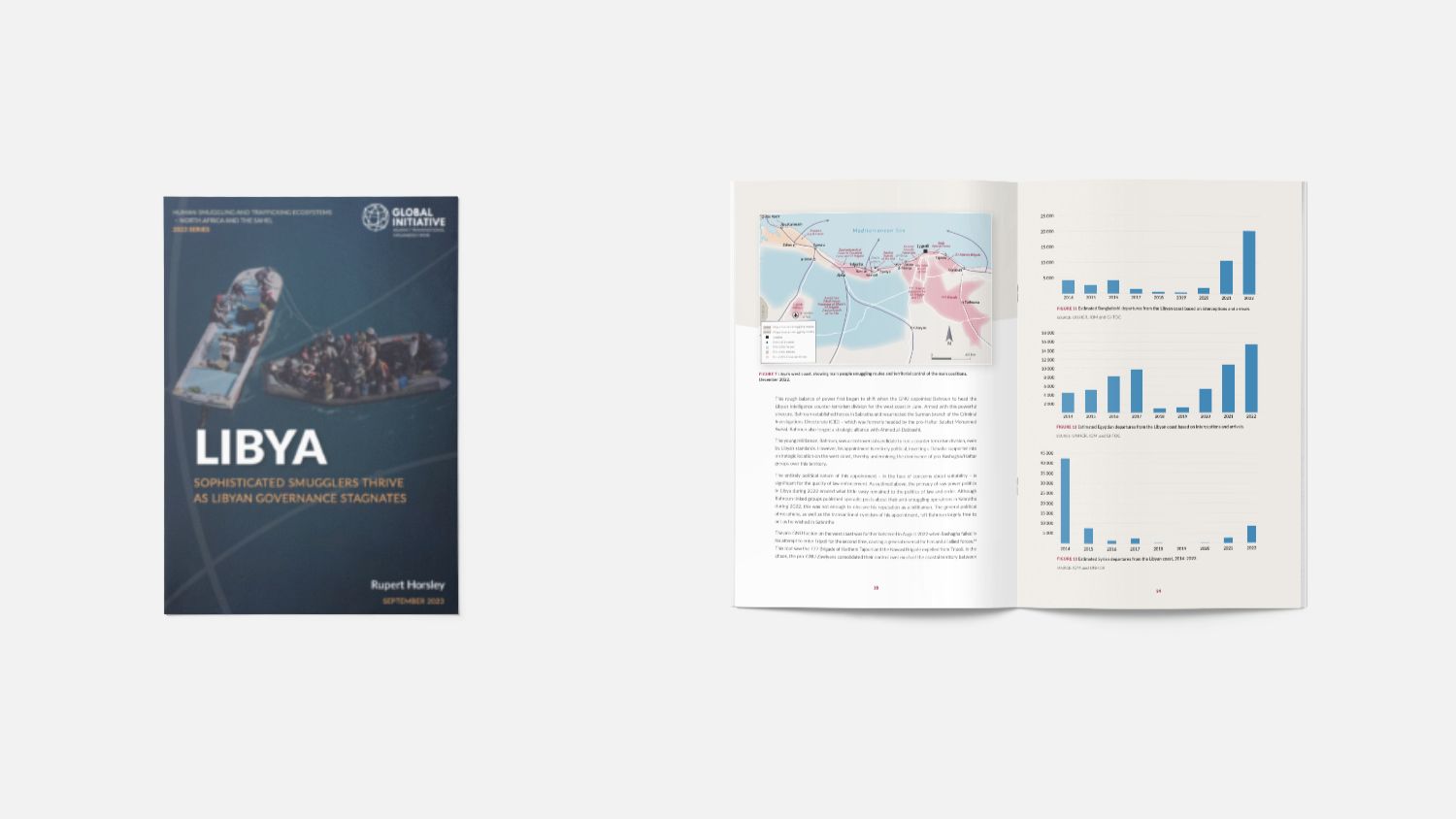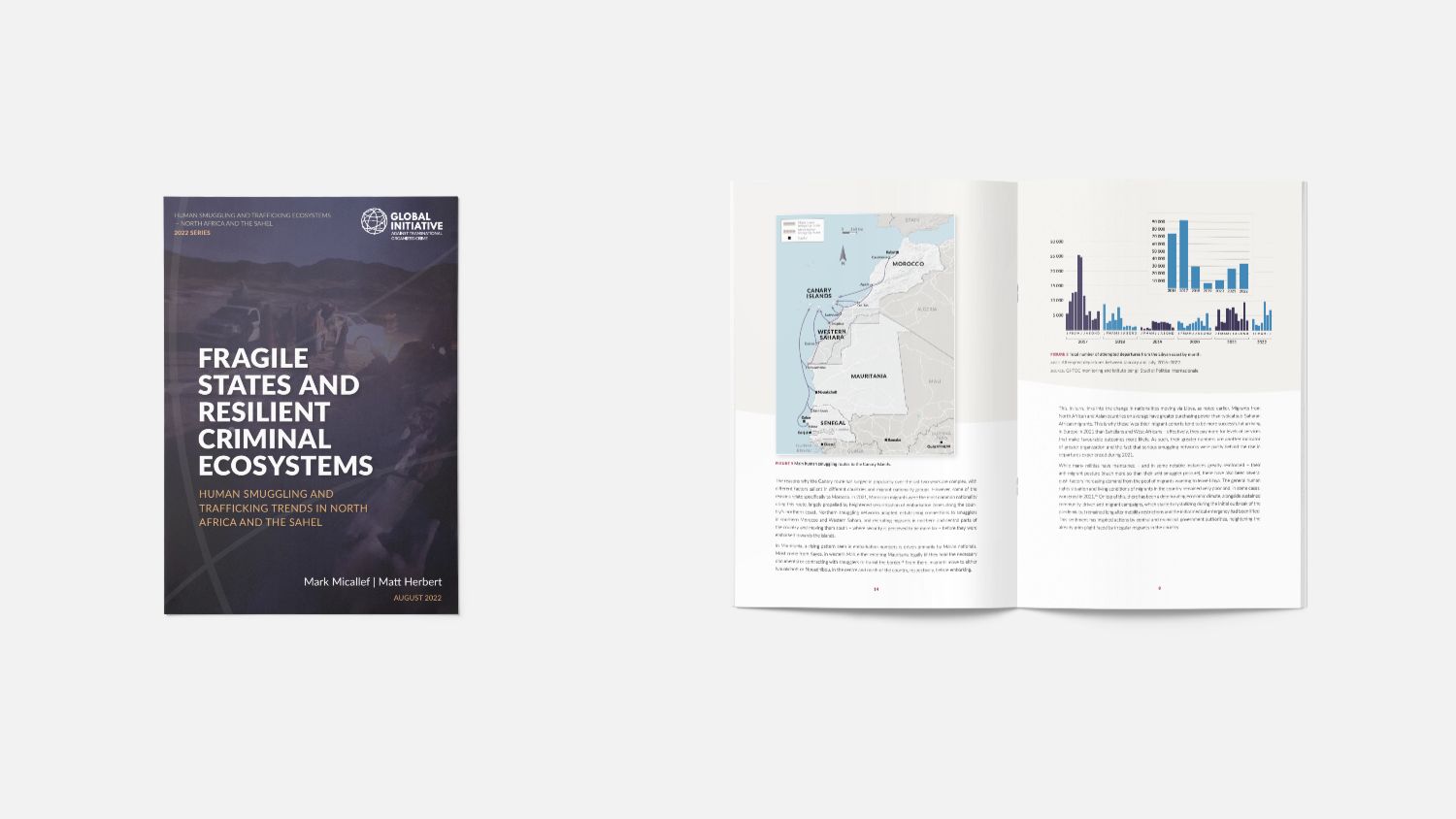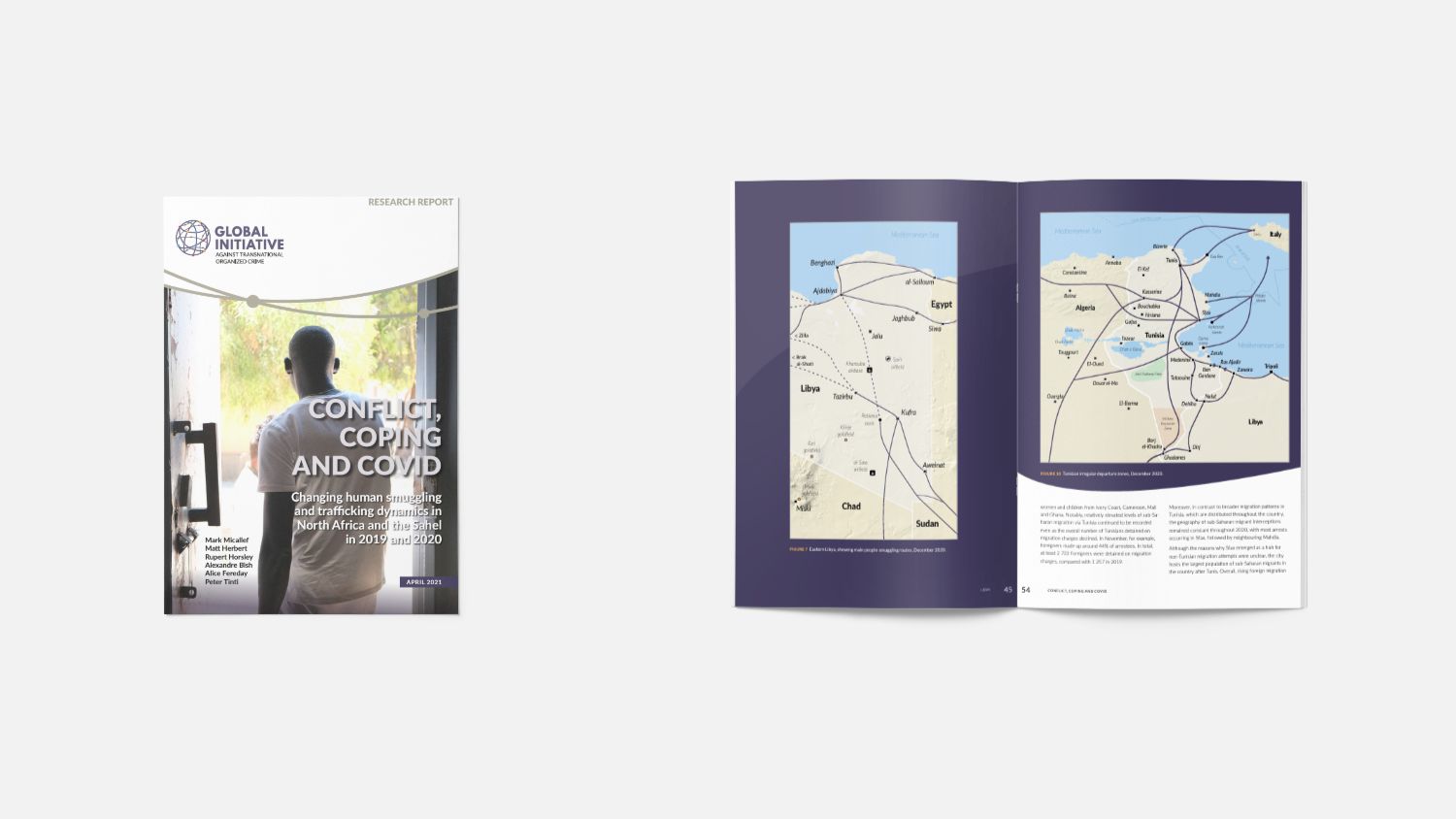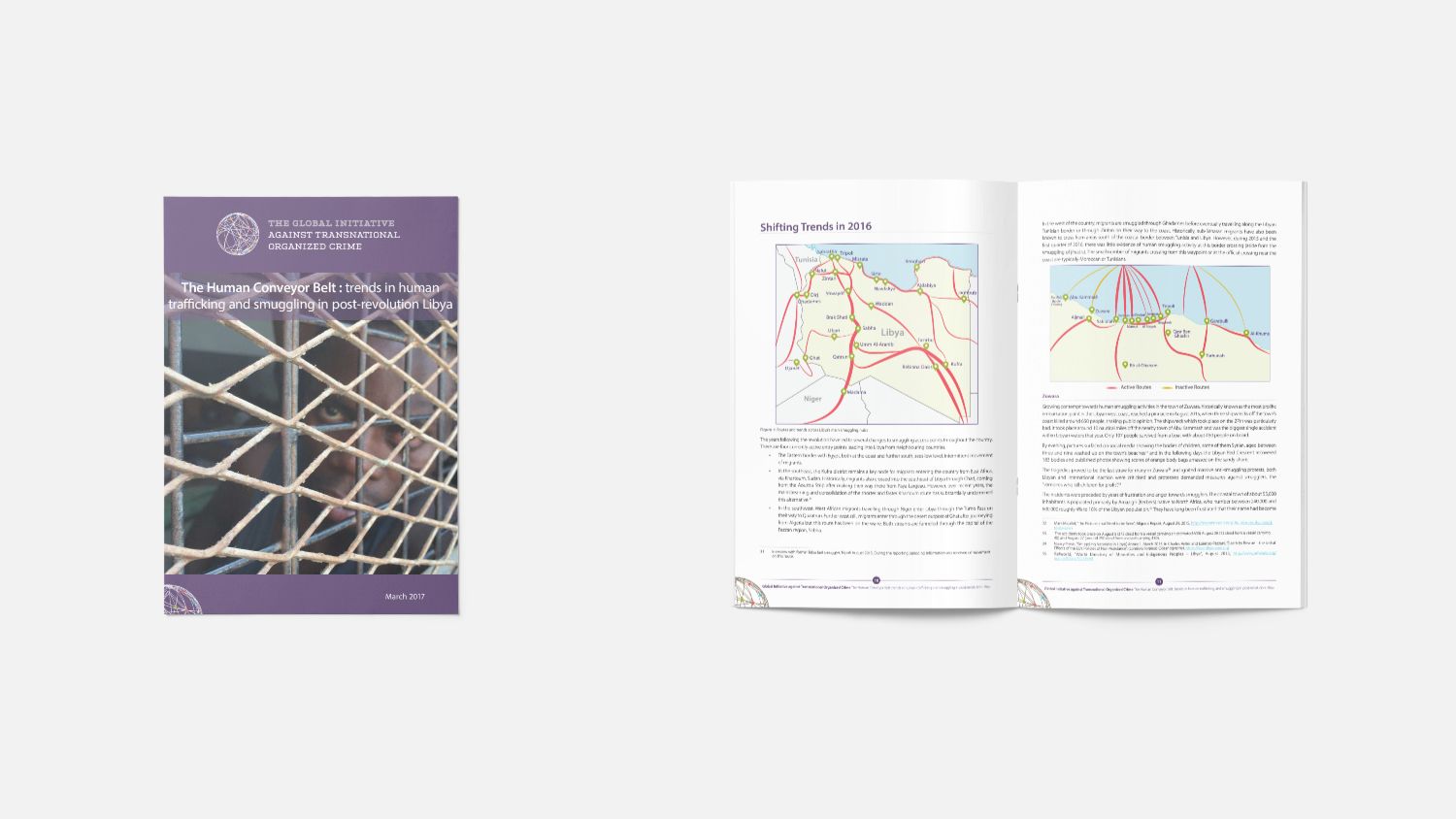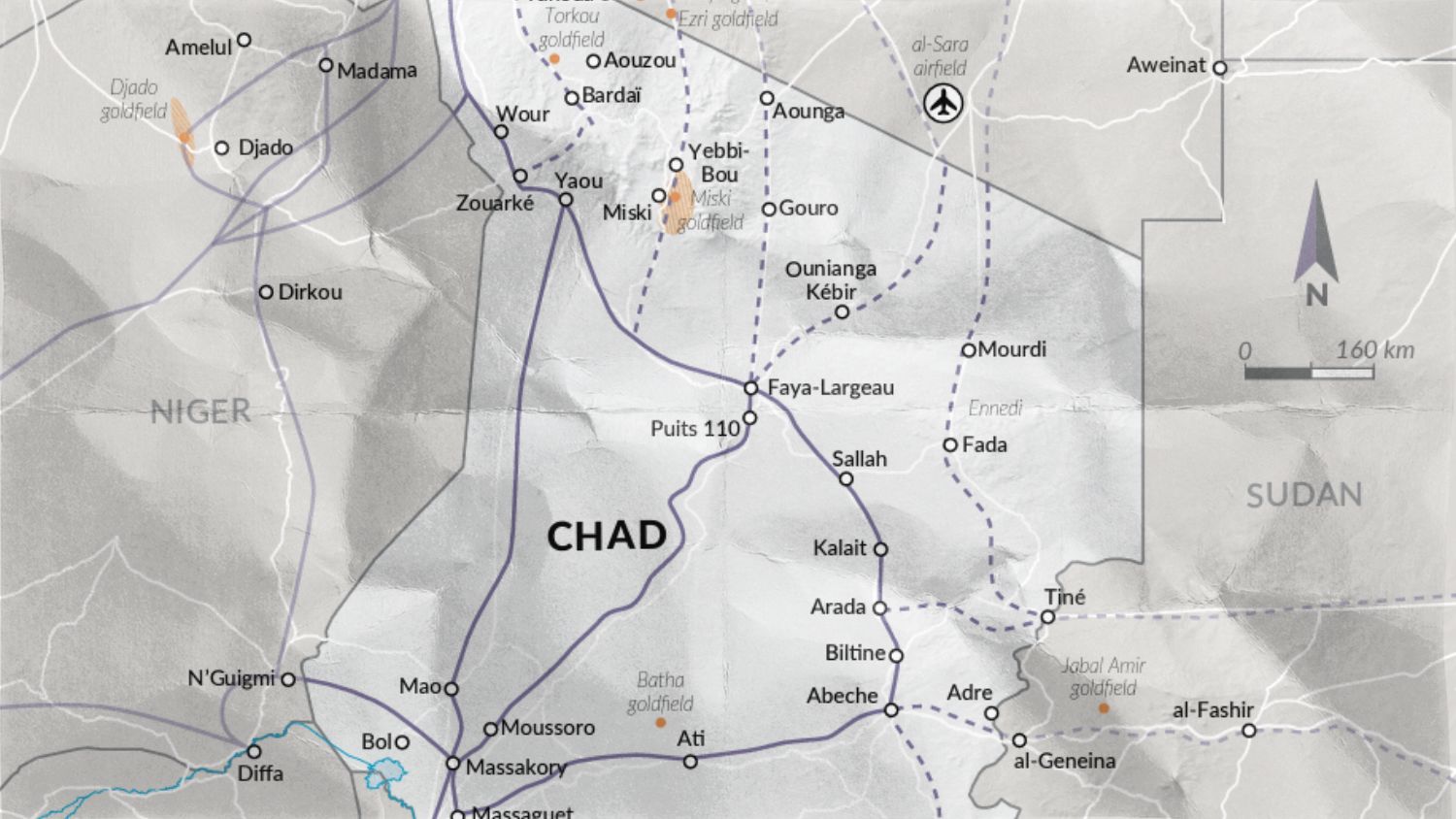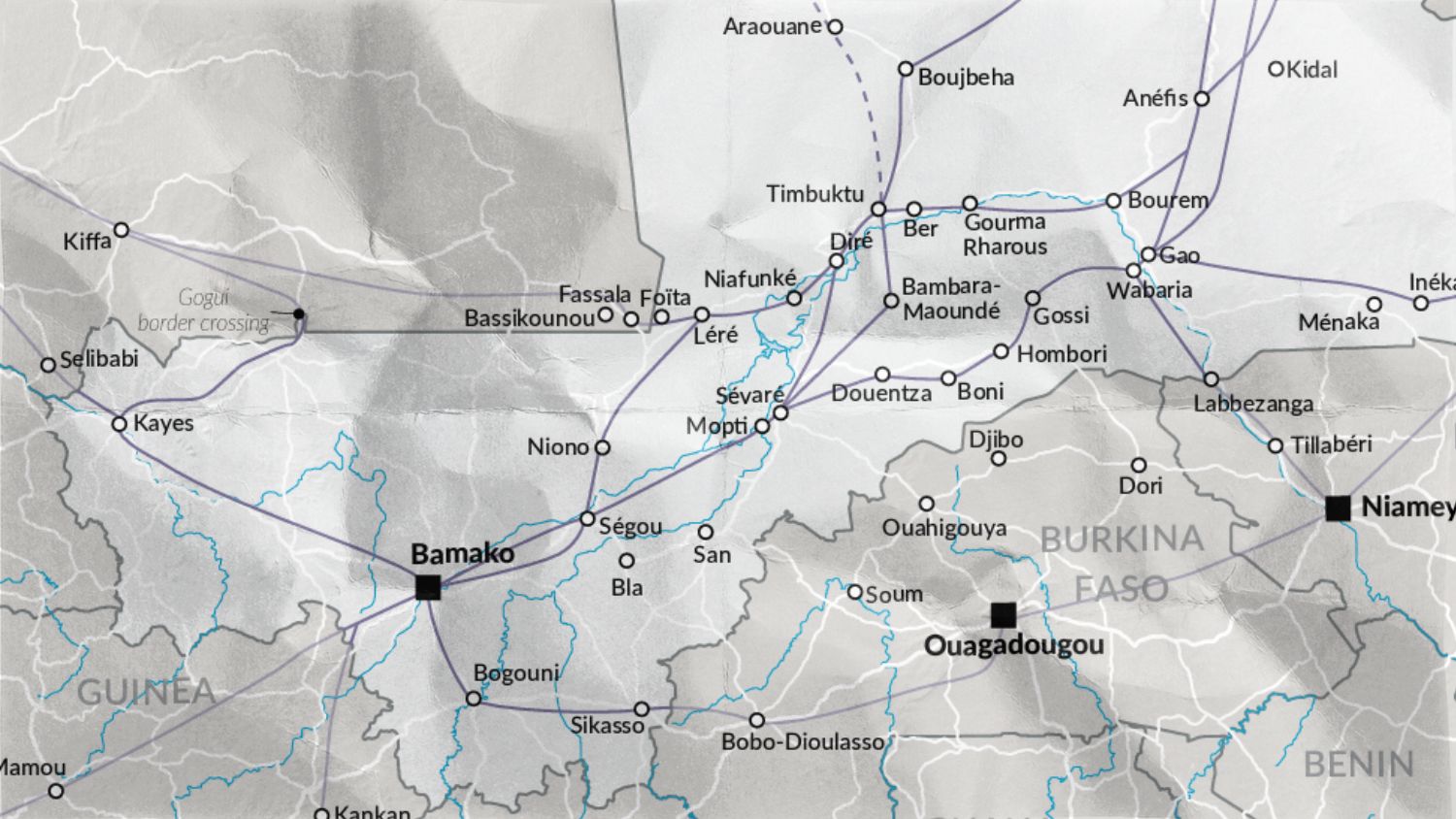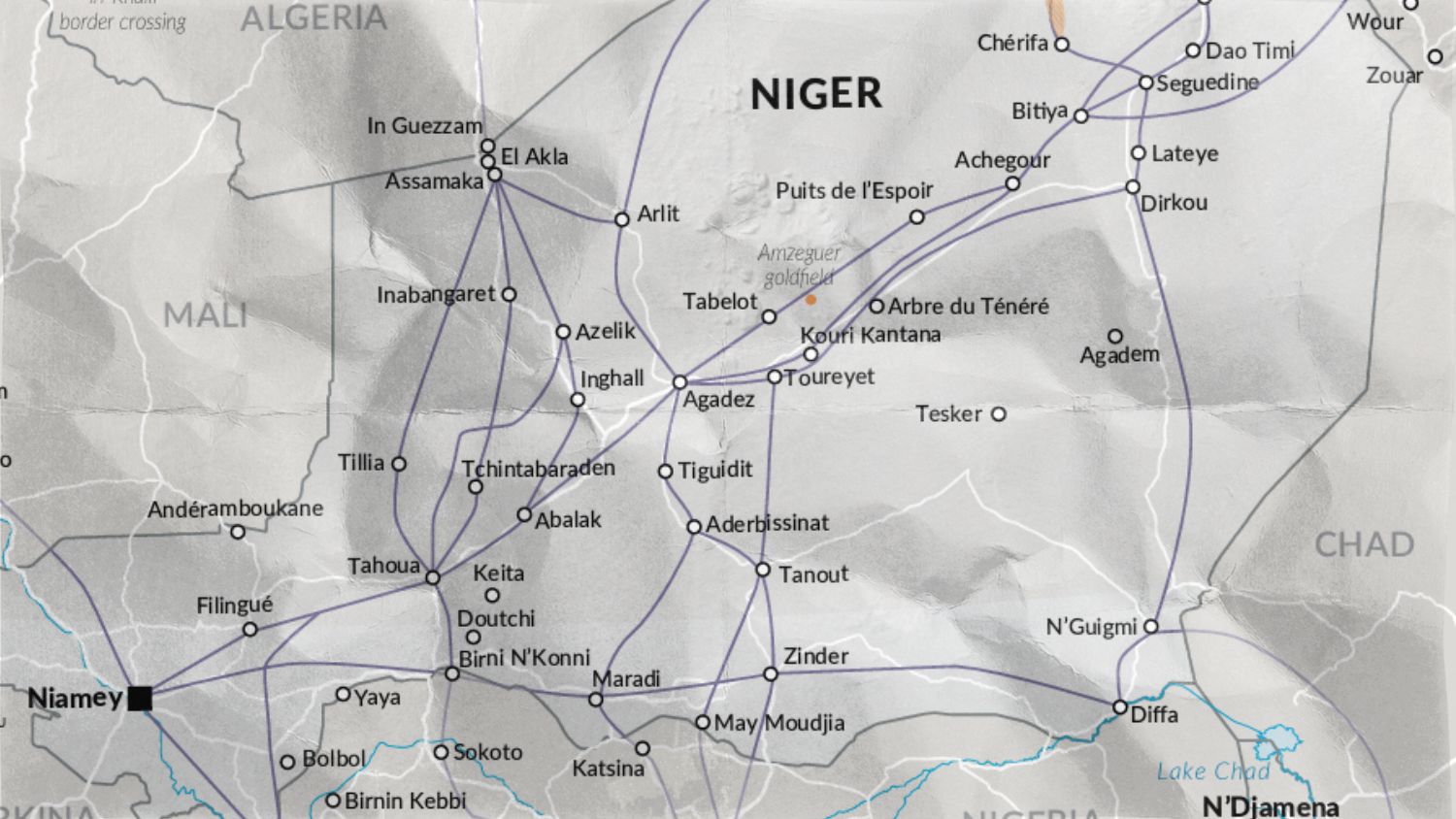Human smuggling and trafficking in North Africa and the Sahel
Mapping smuggling and trafficking, as well as the political and security dynamics
North Africa and the Sahel have been increasingly important regions for migrant movement, human smuggling and human trafficking since the late 1990s. The regions currently comprise key corridors for migrants from Sub-Saharan Africa, South Asia and the Middle East transiting towards Europe, as well as important origin countries in their own right.
Human smuggling in the regions is also highly dynamic, with the post-COVID 19 period recording substantial shifts in the size and direction of migratory flows and smuggling activity. These, in turn, have been driven by substantial political, economic and security changes in these regions, including internal conflict, political instability, and economic insecurity.
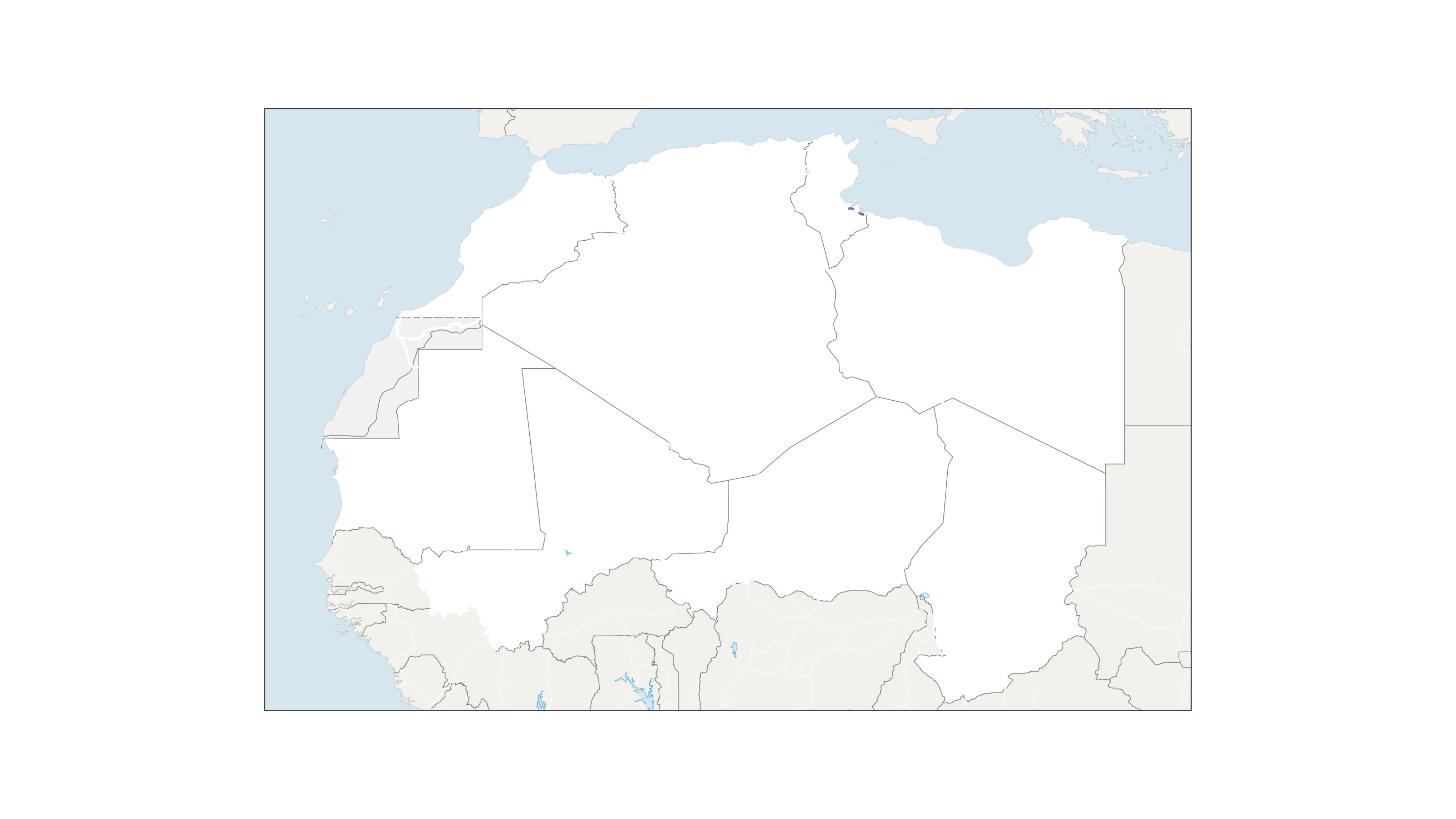
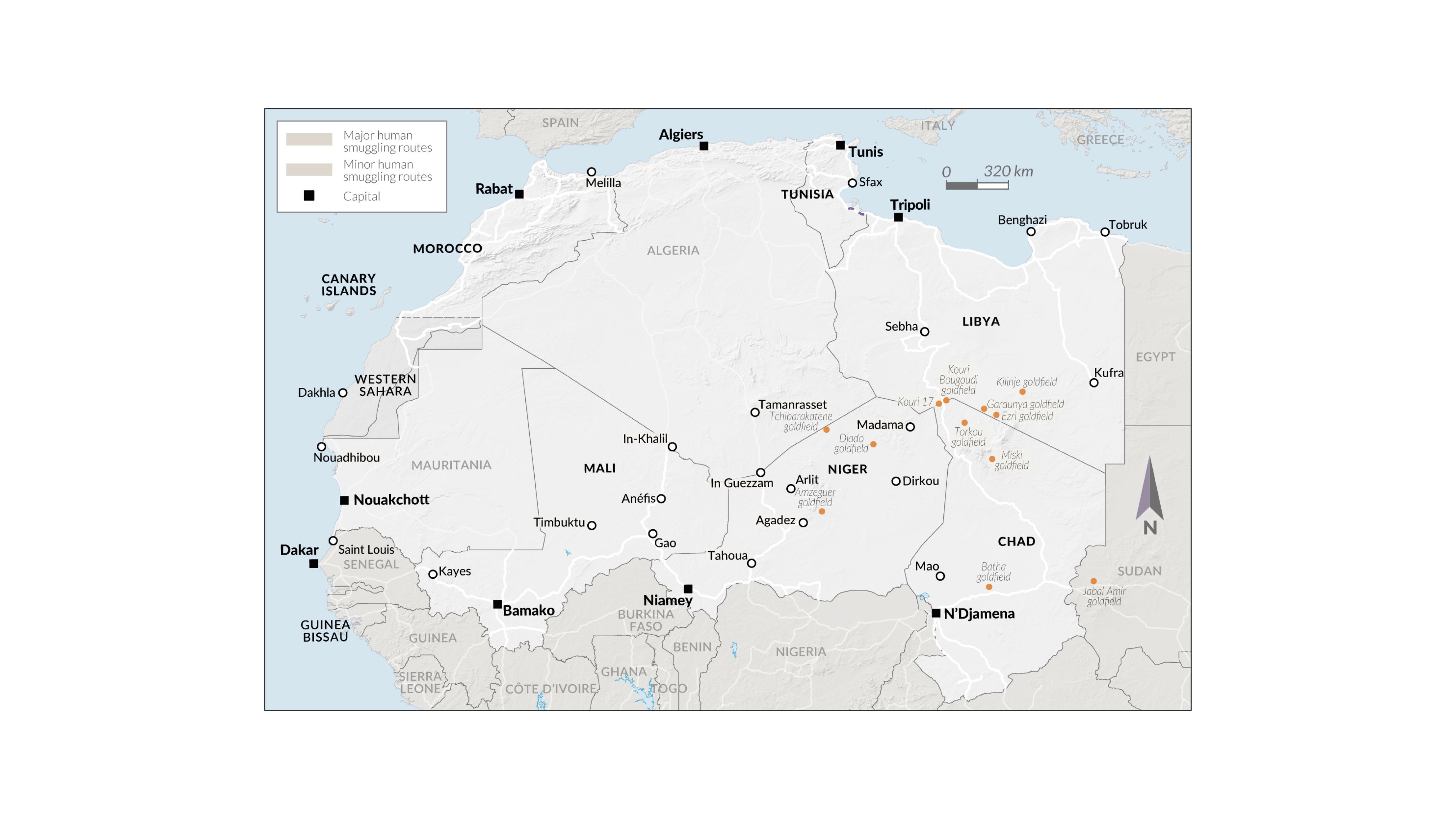
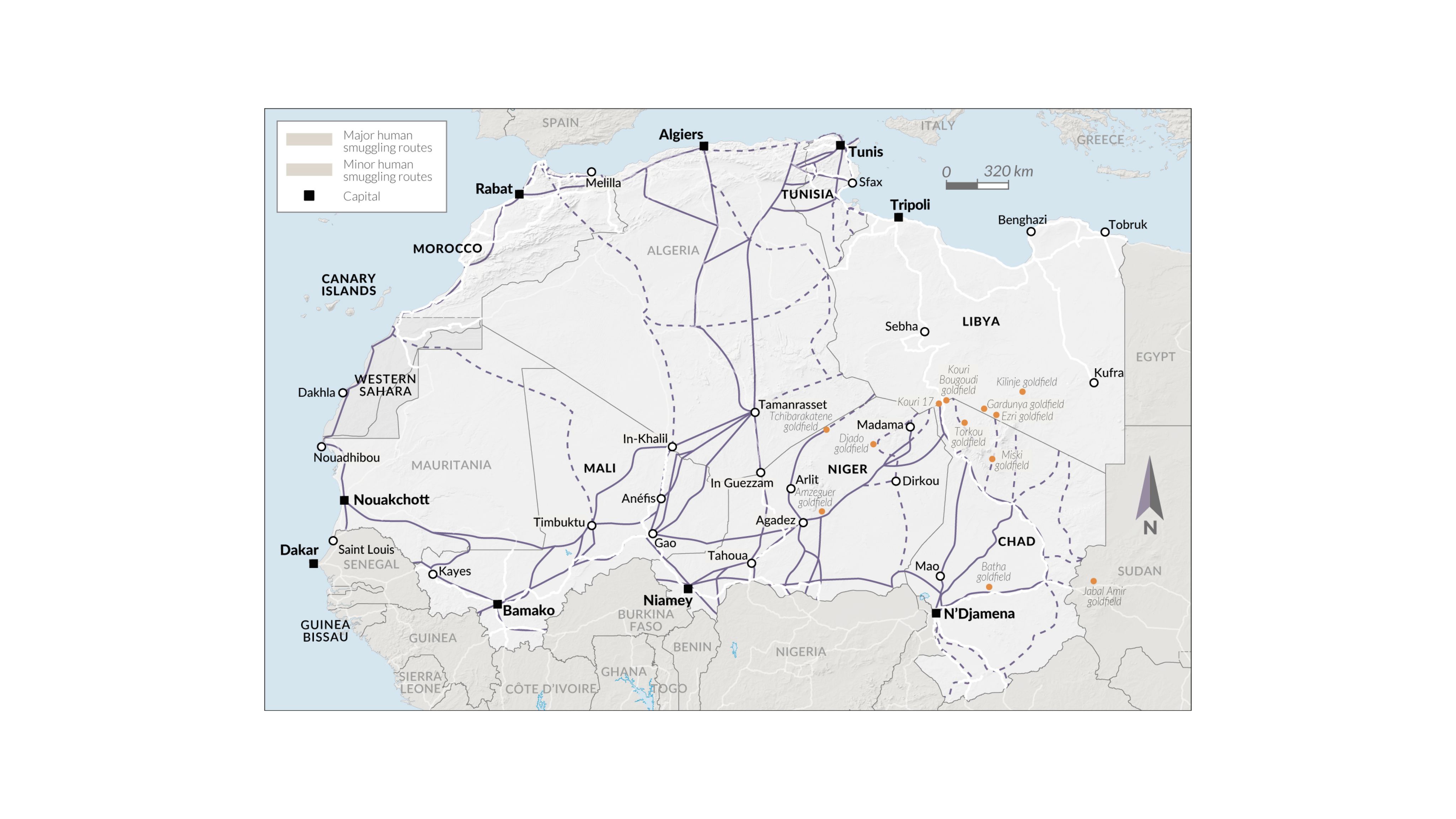
Since 2016, the GI-TOC has engaged in regular monitoring of the political economy of human smuggling and trafficking in North Africa and the Sahel, a process that was expanded and formalised in 2018 with the establishment of the North Africa and Sahel Observatory (NAS-Obs).
This work has resulted in annual country reports focused on human smuggling and trafficking, as well as some cross regional or thematic reports.
2024
The 2024 series covers country reports on Libya, Tunisia, Morocco, Mali, Niger, Chad and Sudan. They chart the broader shifts currently underway in human smuggling through the two regions, which have seen hybrid smuggling surge in Libya, embarkations by foreign migrants rise in Tunisia, and Sudanese refugees increasing movement throughout North Africa and the Sahel. They also detail key political and security dynamics, including the worsening wars in Sudan and Mali, the unstable status quo in Libya, and the growth of political volatility across a number of countries in both regions.
2023
The 2023 series covers country reports on Libya, Tunisia, Morocco, Mali, Niger, Chad. These track the rebounding importance of smuggling from and through the region, and the ways in which dynamics play out differently in the individual countries in focus, as the global economic picture worsens, governance strains become more pronounced, and peace and security challenges rise.
2022
The 2022 series covers country reports on Libya, Tunisia, Morocco, Mali, Niger, Chad, as well as a regional overview brief. These reports focused on the sharp rise in human smuggling and trafficking in the region, as well as the diversification of the routes and methods used for movement. They also detailed the resilience of the smuggling and trafficking economies. This resilience stood in contrast to the more limited economic and systemic resilience of states in the two regions, which have struggled to re-emerge from the pandemic.
